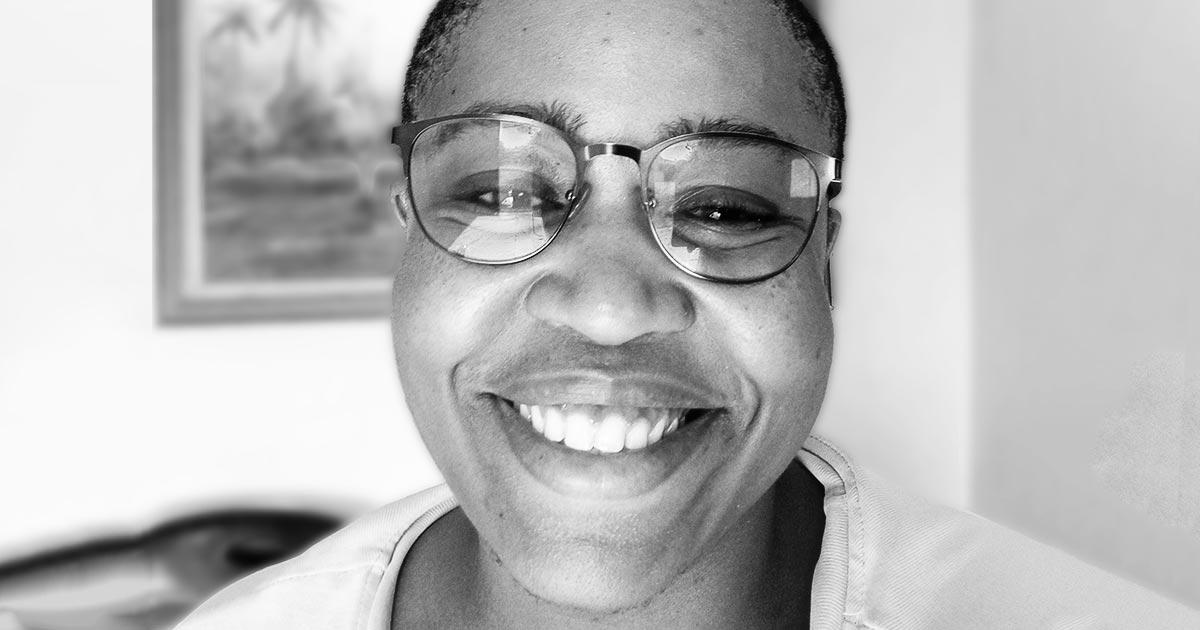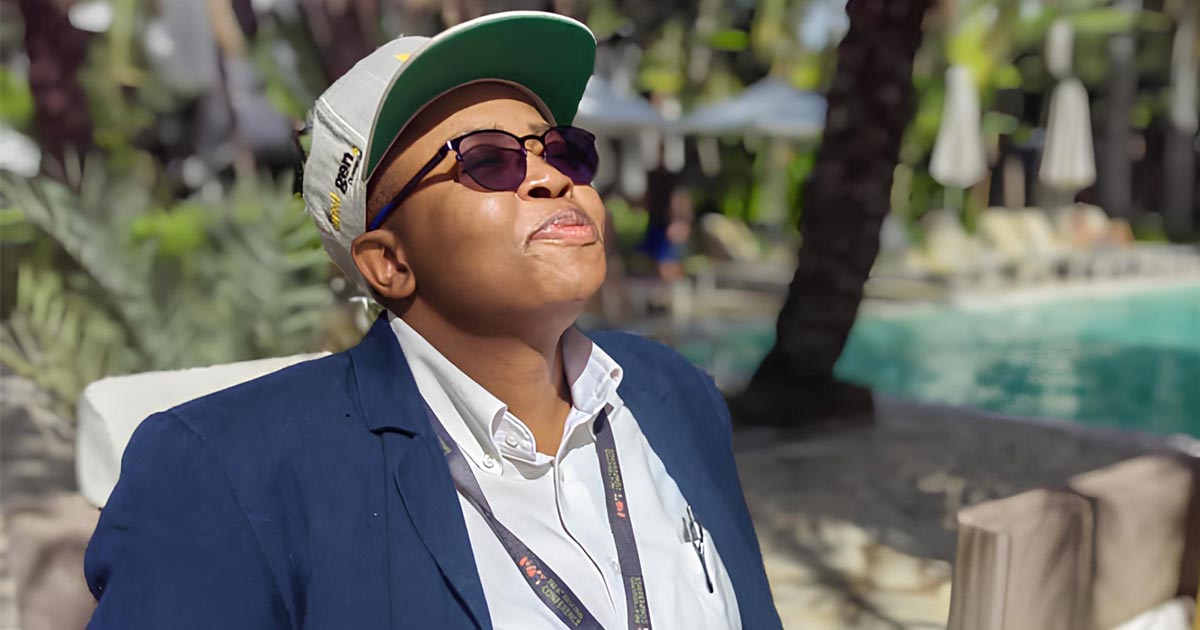A Battle for Dignity: My Journey to Access Gender-Affirming Care in Botswana

Phio Kenosi shares his deeply personal journey of navigating Botswana’s healthcare system in pursuit of gender-affirming care.
The journey to accessing gender-affirming care in Botswana is long, tedious, and confusing. There are endless steps to take, yet no clear guidance on what they are. You are expected to navigate the process on your own, but no one seems to fully understand what it entails.
This is the reality for the transgender and gender-diverse community in Botswana. As a transmasculine non-binary Motswana (he/him pronouns), I hope that by sharing my experiences, I can shed light on the challenges of accessing gender-affirming care in this country.
The Search for a Mental Health Practitioner
When I decided to start Hormone Replacement Therapy (HRT) with testosterone as part of my transition, I followed the guidelines of the World Professional Association for Transgender Health (WPATH). The first step was finding a mental health practitioner experienced in gender and queer issues.
In 2018, I sought out a therapist within the public health sector and was referred to one by the Rainbow Identity Association (RIA), a Batswana organisation advocating for transgender and intersex rights. My therapist had to assess whether they were willing to recommend HRT for me, considering my mental health challenges and the state of my relationship with my family.
In the private healthcare sector, this step may not be required. Instead, many private practitioners follow a self-determination and informed consent model, where individuals assume responsibility for their own transition after being informed of the risks and benefits. However, not all healthcare providers are comfortable offering gender-affirming care, as it remains a legal and medical grey area in Botswana.
Two Years of Advocacy for HRT
It took me two long years of working with my therapist to receive approval for HRT and an endocrinology referral in the public health system. I had to undergo multiple diagnoses and continuously advocate for myself. At every appointment, I repeated the same conversation as a revolving door of healthcare practitioners decided whether I was “worthy” of care.
At the time, the World Health Organization (WHO) had reclassified gender dysphoria as gender incongruence, moving it from a mental health disorder to a natural sexual and reproductive health condition. However, Botswana’s public health system is slow to adapt to new guidelines, especially for issues affecting a minority of the population. As a result, I was forced to navigate an outdated, more onerous classification system.
It’s not surprising then that, if they can afford it, trans people would choose to go through the private health sector to avoid the challenges and humiliation they may otherwise face.
Finally, My First Shot of Testosterone
I was fortunate that the endocrinologist I was referred to had experience with transgender patients, but even then, I had to convince them. I had to prove that I needed HRT and that I had been living as my authentic gender for at least a year.
Finally, on 11 November 2020, during the COVID-19 pandemic, I received my first testosterone injection. It was the worst time to start HRT—public healthcare facilities were prioritising essential medications, there was a global testosterone shortage, and I had to source my treatment from a private clinic.
Despite these obstacles, that first injection was life-changing. While I didn’t notice immediate physical changes, it represented hope—it felt like things would finally get better.
I’m One of the Lucky Ones
In my conversations with other members of the transgender community, we concluded that I was only one of two known transgender Batswana to receive HRT and other gender-affirming services through our public health sector. From what I’ve been able to surmise, others who’ve received gender-affirming care through public health include one non-citizen and several intersex folks, as their care is often framed as “corrective”.
The lack of clear guidelines and policies bottleneck the establishment from assisting the community. Given how expensive it is to get care from private clinics – without the aid of medical aid schemes that still exclude gender-affirming care – these services are almost impossible to access for most transgender Batswana.
This has led to practices such as “medical tourism”. This was especially prevalent during the pandemic when many of us sought out HRT from neighbouring South Africa or anywhere else we could get it from, at whatever cost was demanded and sometimes at a lesser quality. Some of us also started accessing illegal steroids and untested testosterone from gymgoers and sharing the supply with each other to keep the cost down.
The Uphill Battle for Gender-Affirming Surgeries
While non-surgical gender-affirming care like HRT is one major step in medical transition, access to gender-affirming surgeries in Botswana is an even greater challenge.
When I requested a referral for a mastectomy from my endocrinologist, I was sent to a plastic surgeon. However, the surgeon refused to assist me, citing my mental health history as a barrier. To placate me, he demanded a letter from a psychiatrist affirming my mental fitness for surgery.
Even after I obtained the letter, he dismissed it as inadequate, leading to a frustrating back-and-forth between the plastic surgery and psychiatry departments. Eventually, the hospital superintendent intervened, and I was finally placed on the surgery waitlist.
I have been on that waitlist for four years. Every time I inquire, I am given vague excuses about delays, but I am assured that it is “not my fault.”
When I sought a hysterectomy, I was referred to the head of gynaecology, who escalated my request to the Ministry of Health. The final response was that it is “illegal” for me to receive a hysterectomy because I am not a cisgender woman.
There is only one known case of a transgender woman receiving gender-affirming surgery in Botswana’s public healthcare system. I’ve been told this was because she advocated fiercely for herself and was ultimately used as a teaching case for medical students.
Meanwhile, similar procedures—such as breast augmentation, hysterectomies, or laser hair removal—are routinely performed for cisgender individuals without question.

“I cannot overstate my joy from being on HRT—seeing my body grow hair, feeling stronger, and hearing my voice deepen,” says Phio Kenosi.
The Need for Policy Reform
The transgender community continues to be excluded from accessing health care or must jump through endless hoops just to be put on a (seemingly endless) waitlist. This is why some go outside the country to get these procedures done. As they cost an astronomical amount of money, for a majority of the community, this is simply not possible.
The same access to gender-affirming care that is given to cisgender individuals should be afforded to us, because we are who we say we are! Barring us from this care affects legal gender marker changes, employment opportunities and our ability to lead lives that contribute towards society to our fullest potential.
A Frustrating Yet Hopeful Journey
To say I’m frustrated is an understatement, I have been medically transitioning for a long time, yet HRT is the only intervention I have been able to access. This is not to say I’m not grateful, I wish the process were easier and more inclusive.
That said, I cannot overstate my joy from being on HRT—seeing my body grow hair, feeling stronger, and hearing my voice deepen. I “pass” more easily like any other man, but I still feel incomplete without top surgery or a hysterectomy.
My feelings of disappointment and contempt for the government healthcare system grow daily. Yet, I persist—not only because I cannot afford private healthcare, but because I want to pave the way for others in my community. I can safely say I am the most joyful I have ever been in my life because of HRT, but I refuse to accept that it is the bare minimum I should expect from my country’s healthcare system.
Phio Kenosi is a transmasculine non-binary individual from Botswana who’s been actively involved in the trans and gender diverse activist space since 2017. His work focuses on enhancing the lives of trans individuals and advocating for equality and equity within systems.
This article was made possible with the support of the Other Foundation. The views expressed herein do not necessarily represent those of the Other Foundation. www.theotherfoundation.org.
©2025 MambaOnline. This article is licensed under a Creative Commons Attribution-NoDerivatives 4.0 International License. You may republish this article, so long as you credit the authors and MambaOnline, and do not change the text. Please include a link back to the original article.
Leave a Reply